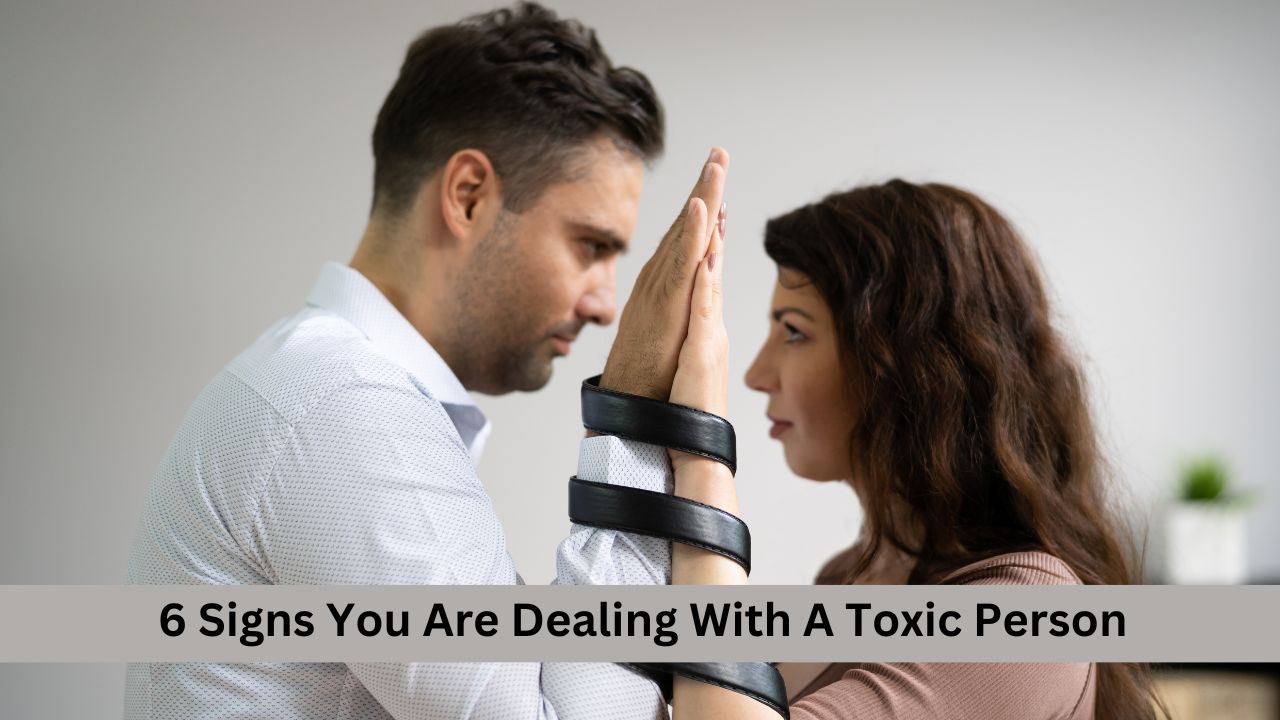6 Signs You Are Dealing With A Toxic Person
Identifying toxic individuals is crucial for maintaining mental and emotional well-being. Several behavioral cues can indicate that you are dealing with a toxic person. Firstly, observe patterns of manipulation. Toxic individuals often employ manipulation tactics to control situations and people around them, whether through guilt-tripping, gaslighting, or playing the victim.
Secondly, pay attention to consistent negativity. Toxic individuals drain energy with their pessimistic outlook on life, constant complaints, and inability to solve problems. This negativity can be contagious, impacting your own mood and outlook.
Thirdly, be wary of their lack of accountability. Toxic people often deflect blame onto others and refuse to take responsibility for their actions. They may also exhibit lying or deceit to avoid facing consequences.
Furthermore, notice how they treat others. Toxic individuals may exhibit traits of narcissism, showing a lack of empathy and exploiting others for their gain. They may also gossip, backstabbing, or sabotage to maintain control and power dynamics.
Lastly, trust your intuition. If interactions with someone consistently leave you feeling drained, anxious, or invalidated, it may be a sign that you are dealing with a toxic person. Recognizing these signs empowers you to set boundaries and prioritize your own well-being in relationships.
6 Signs You Are Dealing With A Toxic Person

Constant Criticism:
Toxic individuals criticize others relentlessly, whether about their appearance, choices, or behaviors. This criticism is not constructive; instead, it’s aimed at undermining your self-esteem and making you doubt yourself. They may nitpick everything you do, leaving you feeling inadequate and insecure.
Manipulative Behavior:
Toxic people are masters of manipulation. They use tactics like guilt-tripping, emotional blackmail, and gaslighting to control others. They twist facts, distort reality, and make you doubt your perceptions and experiences. Their ultimate goal is to maintain power and dominance in the relationship.
Lack of Empathy:
Empathy is a crucial component of healthy relationships, but toxic individuals often lack it. They are unable or unwilling to understand or consider other people’s feelings and perspectives. Instead, they prioritize their needs and desires, disregarding how their actions impact others. This lack of empathy can lead to hurtful behavior and emotional neglect.
Boundary Violations:
Toxic individuals have little respect for boundaries. They may disregard your personal space, invade your privacy, or ignore your requests for space or autonomy. They may also try to control who you spend time with, what you do, or how you feel, crossing boundaries and infringing on your independence.
Drama and Conflict:
Toxic people thrive on drama and conflict. They often stir up trouble, instigate arguments, and create chaos in their relationships. They may enjoy playing the victim or starting rumors to manipulate situations. Their constant need for attention and validation can make relationships with them exhausting and tumultuous.
One-Sided Relationships:
Relationships with toxic individuals tend to be one-sided. They may demand much from you—your time, attention, and resources—without offering much in return. They may exploit your kindness, generosity, or goodwill for their benefit, leaving you feeling used and unappreciated. In a healthy relationship, there should be a balance of give and take, but with toxic individuals, it’s often skewed in their favor.
FAQs About “6 Signs You Are Dealing With A Toxic Person”
How do you know if someone is toxic?
Identifying if someone is toxic involves observing their behavior and how it affects you and others around them. Here are some indicators that someone may be toxic:
- Consistent negativity: Toxic individuals often have a negative outlook on life and tend to complain frequently. They may focus on problems rather than solutions and spread pessimism in their interactions.
- Manipulative behavior: They use manipulation tactics such as guilt-tripping, gaslighting, or playing the victim to control others and get what they want.
- Lack of accountability: Toxic individuals rarely take responsibility for their actions and may blame others or external circumstances for their mistakes. They may also avoid apologizing or making amends.
- Boundary violations: They disregard personal boundaries and may intrude on your space, time, or emotions without respect for your needs or preferences.
- Drama and conflict: Toxic individuals thrive on drama and may create or escalate conflicts in relationships. They may enjoy stirring up trouble or instigating arguments to maintain control or attention.
- Lack of empathy: They show little empathy or consideration for others’ feelings and perspectives. They may be insensitive, dismissive, or even cruel towards others’ emotions.
- Self-centeredness: Toxic individuals often prioritize their own needs and desires above others’. They may exploit or manipulate others to serve their own interests without regard for the well-being of those around them.
- Pattern of broken relationships: If someone has a history of tumultuous or dysfunctional relationships, it could be a sign that they exhibit toxic behaviors that drive people away.
It’s important to trust your instincts and pay attention to how you feel in the presence of someone. If interactions with them consistently leave you feeling drained, anxious or invalidated, it may be a sign that they are toxic. Setting boundaries and prioritizing your well-being is essential when dealing with toxic individuals.
Final Thoughts on “6 Signs You Are Dealing With A Toxic Person”

Leave a Reply